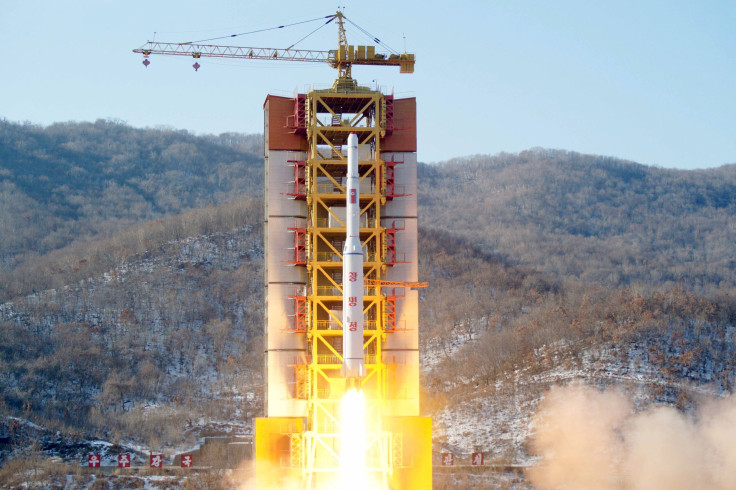US Senate Passes Bill To Impose Stronger Sanctions Against North Korea After Satellite Launch

The U.S. Senate passed a legislation Wednesday aimed at imposing stronger sanctions against North Korea after it launched a satellite, feared by Western powers to be a cover for developing an intercontinental ballistic missile capable of carrying a nuclear bomb. Sunday's launch was criticized by international powers and South Korea has since asked the United Nations Security Council to impose stronger sanctions against the Kim Jong Un regime.
The latest bill passed unanimously with 96 lawmakers reportedly voting in favor of the bill to blacklist those helping North Korea in its nuclear and missile programs, human rights abuses, cyberattacks and other crimes, and freeze funds that could help the reclusive country build an atomic arsenal. The bill also prohibits any foreign assistance to countries that provide lethal military equipment to North Korea.
The legislation also includes the authorization of $50 million to transmit radio broadcasts, procure equipment for communications and support humanitarian assistance programs over the next five years, the Associated Press (AP) reported. The bill was introduced in the Senate by Sen. Bob Menendez, D-N.J., and Sen. Cory Gardner, R-Colo., and was originally authored by Sen. Ed Royce, R-Calif., according to Yonhap.
The Yonhap report added that the bill is believed to carry the strongest set of sanctions ever introduced against Pyongyang.
“This legislation ... will use targeted sanctions to isolate Kim Jong-un and his top officials from the assets they maintain in foreign banks, and from the cash that sustains their weapons programs, their army, and their luxurious lifestyle,” Royce said, in a statement cited by Yonhap, adding: “It's an important response to North Korea's recent nuclear test and missile launch, and it's a break from President (Barack) Obama's approach of 'strategic patience' that even the administration knows isn't working.”
Gardner also said, according to AP, that Obama’s policy of “strategic patience” with respect to Pyongyang had not been successful and that “the situation in the Korean peninsula is at its most unstable point since the armistice" that came into place after the Korean War in 1953.
Gardner also said, according to Yonhap: “It is evident the regime's nuclear and ballistic missile capabilities are growing, not slowing. At the same time, North Korea has bolstered its cyberattacks and continues to imprison and horrifically torture more than 200,000 of its own men, women, and children,” adding: “This legislation is the first step toward building a new policy that will put pressure on Pyongyang to peacefully disarm and cease its violations of international norms.”
The U.S., South Korea and other Western countries consider the satellite launch to be part of a banned test of missile technology following an assessment of Pyongyang’s efforts to make nuclear-tipped missiles that could hit South Korea and the U.S.
Pyongyang has issued several threats in the past against the U.S. and South Korea. On Tuesday, Director of National Intelligence James R. Clapper said that North Korea has expanded its uranium facilities and restarted its plutonium reactor.
"We assess that North Korea has followed through on its announcement by expanding its Yongbyon enrichment facility and restarting the plutonium production reactor," Clapper reportedly said, adding: “We further assess that North Korea has been operating the reactor long enough so that it could begin to recover plutonium from the reactor's spent fuel within a matter of weeks to months.”
Clapper added that though North Korea was not known to have tested a long-range, nuclear-armed missile it seemed to be working to develop such a missile.
Daniel Kritenbrink, White House director for Asian affairs, said according to AP, that the leaders at the U.N. Security Council are also discussing new sanctions against Pyongyang while Washington is considering “other unilateral measures.”
© Copyright IBTimes 2024. All rights reserved.






















